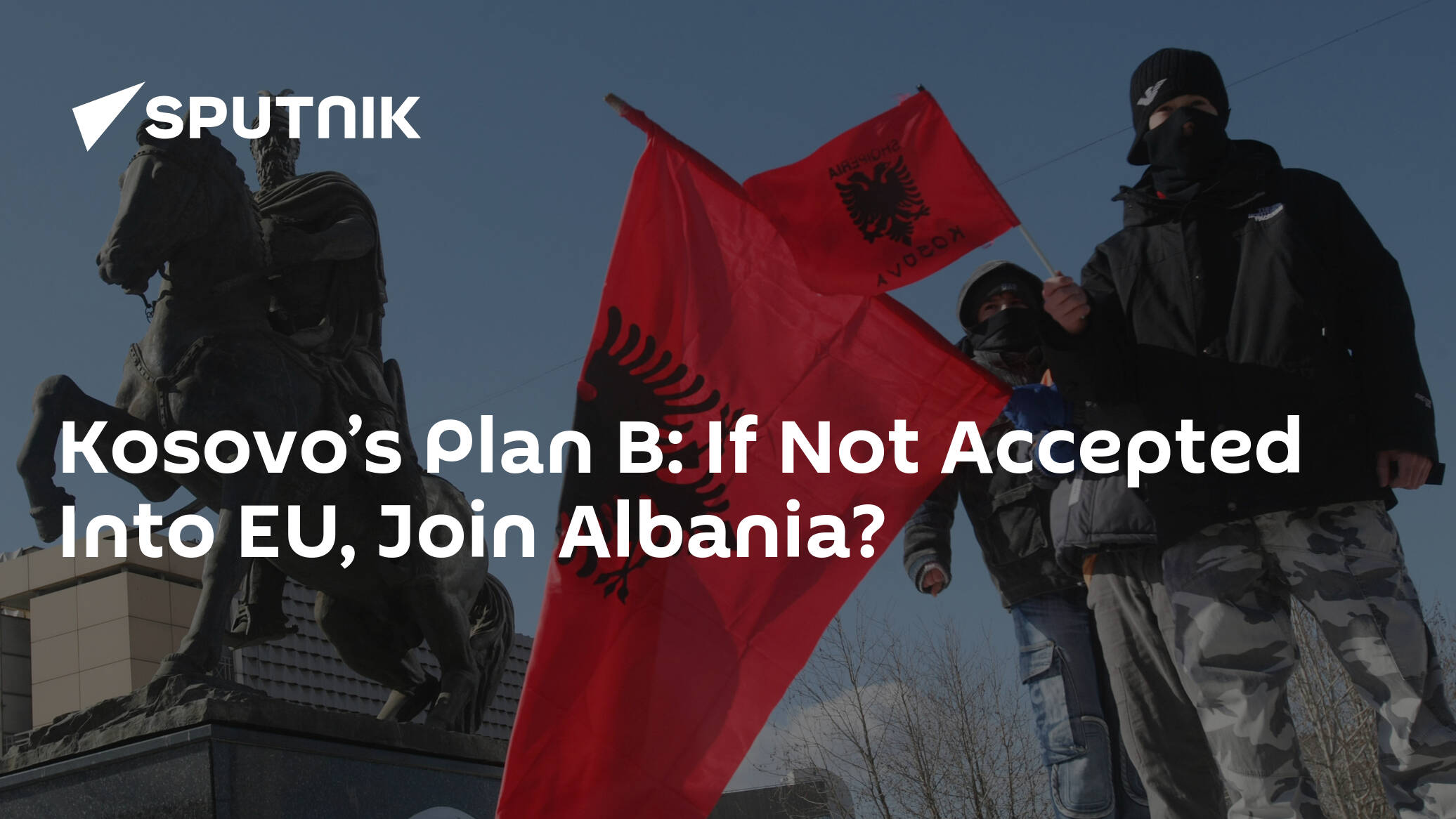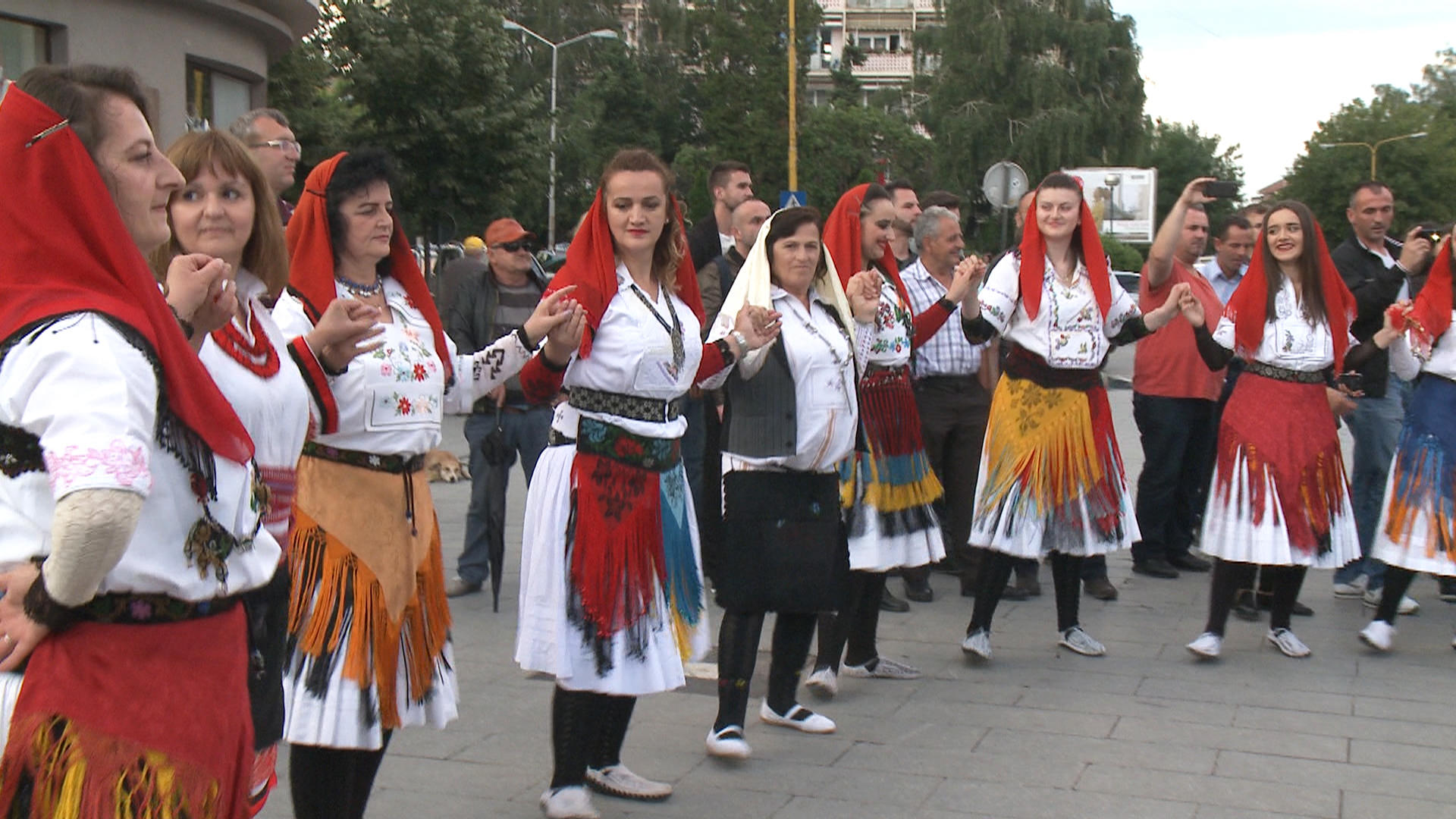Little arguing Kosovo is a failed state, it is incredibily poor and struggles to govern all of its claimed territory. I don't know if Kosovo has ever been a strong economic region or not but I imagine its disputed existence and lack of recognition from many states limits its development.
Kosovo: News, Politics & Issues
Collapse
X
-
Last edited by Liberator of Makedonija; 11-02-2017, 09:24 AM.I know of two tragic histories in the world- that of Ireland, and that of Macedonia. Both of them have been deprived and tormented.
-
-
For those reasons in particular, recognition of Kosovo by the Serbian government is a condition to enter the EU, which is undermined as "normalising relations" with Kosovo. Just like a condition for Macedonia to enter the 4th Reich is to "normalise relations" with Greece i.e sell the identity and name.
Comment
-
-
LoLOriginally posted by Albo View PostDoing Business 2018: Kosovo Among Top Ten Reformers in the World
http://www.finchannel.com/business/6...s-in-the-world
Like I said, when you start from the bottom the only way to go is up, but your ceiling is so low the "country" will never amount to anything.
Macedonia has been on this list too and the economy sucks. As a matter of fact there is mass emigration from all of southeastern Europe for a reason.
Comment
-
-
The Serbs, Roma and other minorities deserve just as many rights as the Albanians in Kosovo. They are and always will be a part of Kosovo forever.Originally posted by Albo View PostSerbian Monarchists, British Right-Wingers Plot Kosovo ‘Resistance
http://www.balkaninsight.com/en/arti...ce--11-02-2017
Who knows, maybe one day northern Kosovo will split from Kosovo proper and join Serbia. Why not? If this is the will of the people to democratically vote for independence then they can do so.
They are a minority who want to govern/have independence from a "country" and they deserve the same right that any minority does.
Comment
-
-
Kosovo Calls For Investigation After Macedonia Convicts Group For Deadly Gunbattle
 Kosovo has called for an international investigation over the conviction of several of its citizens by a Macedonian court for taking part in a gunbattle with police.
Kosovo has called for an international investigation over the conviction of several of its citizens by a Macedonian court for taking part in a gunbattle with police.
******************
Trying to make Kosovo work
Comment
-
-
Kosovo and Catalonia Have Little in Common
Catalonia’s recent declaration of independence has prompted many to draw comparisons with events in Kosovo – but closer analysis shows the two cases are very different.
Chema Arraiza
*
BIRN
e Spanish government has taken direct control of Catalonia in the past few days in order to quell its bid for independence.
Serbia’s government made a similar move in Kosovo in 1989, acting to prevent the independence of its southern province. That led to the violent breakup of the former Yugoslavia, while Serbia’s subsequent actions eroded the legitimacy of its claim to Kosovo.
These days, many experts, officials and ordinary people, are pondering whether these two situations are comparable.
In a world with far more ethnicities than states, autonomy is an admirable tool for the management of territorial conflicts without partition. In theory, autonomy allows internal self-determination while respecting the international borders of current states.
Unfortunately, when populism takes over and when “let's take our country back” becomes the main game in town, autonomy – as a middle ground gives way to independence whilefull ethnic integration becomes the goal of both the capital and the periphery.
This was the case in Kosovo in the Eighties and is, to a lesser extent, the case today in Spain.
In both cases, autonomy was a part of long-term processes in which both central and provincial leaders tried to outmanoeuvre each other in separate nation-building efforts.
Nationalism, as understood by Ernest Gellner as the will to match the national with a political identity, was the overarching principle behind this process.
Different drivers of the crisis
However, one of the biggest differences between these two cases was the fact that in Kosovo, Serbia’s move to strengthen its central powers became the main driver of the crisis.
In Catalonia, it was the Catalan drive for independence that rocked the boat.
Serbia undertook measures against Kosovo's autonomy through constitutional reforms and emergency measures, which strengthened the powers of the central government and reduced the competencies of the “Socialist Autonomous Province of Kosovo” back to its pre-1968 levels.
In Catalonia, the crisis stemmed from initiatives coming from the periphery aiming at wider competences and powers.
Contrary to the Serbian government, Spain’s Socialist government in 2006 strengthened Catalan autonomy by passing a law - the Statute of Autonomy of Catalonia - which the legislature in the autonomous Spanish community first adopted, and was later approved by Spain’s parliament and then ratified in a referendum by Catalan voters.
Spanish conservative politicians challenged that law before the Spain’s Constitutional Court, which in 2010 partially restrained the original statute.
However, given that out of the statute’s 223 articles the Court struck down “only” 14 and curtailed another 27, some saw this intervention as mostly harmless.
Others claimed this landmark ruling inadvertently laid the ground for Catalonia's recent independence referendum.
The decision was seen as an attack on Catalan self-government, despite it consisting mostly of interpretative provisions, leaving most competencies (language, education, health, police) intact.
Symbolic questions such as the recognition of a Catalonian nation [in the Spanish Constitution a “nationality”] and the rejection of the Catalan language as “preferential” rather than “co-official” heated the debate.
But, given that even after the 2010 Constitutional Court ruling Catalonia maintained a large degree of autonomy, with legislative powers and safeguards for the culture and language of Catalonia, this situation is hardly comparable with Kosovo, whose slim powers were completely stripped away by the Serbian government.
After the 2010 court ruling, the then pro-autonomy Catalonian conservatives took on an independence agenda, shifting an old balance.
Seven years and several pro-independence mobilizations later, on October 1, 2017, a Catalonian nationalist coalition government organised a referendum on independence, despite this being suspended by the Constitutional Court.
While largely only pro-independence voters participated [2 million out of 7 million voters in Catalonia], the event was a public relations success.
Different ‘special measures’
A comparison of the measures that the Serbian government used against Kosovo’s autonomy in 1989, and those used by Spain against Catalan independence in 2017, also show up more differences than similarities.
Serbian MPs in 1989 effectively abolished Kosovo's autonomy, guaranteed in the Yugoslav Constitution from 1974, while the
Kosovo parliament was at the time surrounded by tanks and its work hindered by incidents and irregularities.
The Spanish government also tried to use force to prevent the independence referendum in Catalonia. Prior to the 1 October referendum, thousands of national police and “Guardia Civil” were deployed to Catalonia.
Regardless of its size, however, the Spanish police force in Catalonia could not be compared with Serbia’s heavy military presence in Kosovo in 1989.
The legal “special measures” imposed in Kosovo and Catalonia are also worlds apart. While Serbia’s government used force to abolish Kosovo’s administrative autonomy, Spain, after failing to prevent the holding of the independence referendum., focused on using Article 155 of the Spanish constitution.
This allows it to intervene in its regions to ensure the rule of law. However, Article 155 does not annul Catalan autonomy or change its Autonomy Statute. Basically, it is a temporary measure aimed at bringing the Catalonian authorities back under the rule of law.
The Spanish government has sacked the current Catalonian government and substituted its functions through an authority answering to the Upper House [where pro-independence parties are present’, and has called regional elections that are scheduled for December 2017.
But the problem with Article 155 is its lack of definition and many use that to dispute the Spanish government’s actions.
Scale of repression very different
The socio-political differences between Kosovo and Catalonia are enormous. Catalonia is the wealthiest region of Spain, while Kosovo was the poorest territory of former Yugoslavia.
The differences between Catalans, pro-independence or not, and other Spaniards, are primarily linguistic. There is no ethnic difference between pro-independence and pro-union Catalans.
Catalonian leaders often refer to Kosovo as a precedent for Catalonia to become a state. The argument is based on the 2010 Advisory Opinion of the International Court of Justice, ICJ, which found no international prohibition on declarations of independence [without ruling on the legality of remedial secession].
Pro-independence parties have largely won the propaganda war. They have convinced many people that the right to vote includes an entitlement to vote in binding self-determination referendums. If unilateral secession is now illegal, this argument goes, so once was gay marriage and other rights.
But while the Spanish police have acted brutally, it is still disingenuous to compare it with the repression that took place in Kosovo.
While the incarceration of two Catalan civil society leaders and the charges filed by Spain’s prosecutor against the deposed President of Catalonia, Carles Puigdemont, could be compared to the arrests of Kosovo leaders such as Azem Vllasi, repression in Kosovo in 1989 resulted in at least 20 persons being killed. Martial law was declared.
Levels of support for the two independence movements are also very different. The vast majority of Kosovo Albanians favoured independence. But in Catalonia, only 47.5 per cent did in the last regional elections.
The Catalan strategy could be compared to that of the Kosovo Albanians in the 1990s with the use of unofficial elections and parallel structures.
However, their more recent strategies are different. Kosovo issued a “Coordinated Declaration of Independence” in 2008 in full agreement with the US and most EU countries. The building blocks of Kosovo were in place well before this declaration was issued.
In Catalonia, the nationalists started a house from the roof, declaring independence before functions such as tax collection or a civil registry even existed.
In all, Kosovo in 1989 and Catalonia today have little in common.
As Marx said, history repeats itself first as a tragedy and secondly as a farce. The Kosovo tragedy is not comparable to the theatrical play between Madrid and Barcelona.
That said, beating up protestors and imprisoning politicians on dubious charges is a risky tactic. A societal disconnection may take place with unpredictable consequences.
Spain needs to strengthen its legitimacy to rule over Catalonia. Catalonian nationalists need to abandon their colourful cocoon and lower their promises. A bit less may bring much more.
Chema Arraiza worked for international organisations dealing with the consequences of conflict and its prevention, including the OSCE in Kosovo.
Comment
-
-
Kosovo’s Plan B: If Not Accepted Into EU, Join Albania?
 If Kosovo does not reach its goal of the international recognition of independence by February next year, when it will mark ten years of self-proclaimed autonomy from Serbia, Kosovo will hold a referendum on joining Albania, a source in...
If Kosovo does not reach its goal of the international recognition of independence by February next year, when it will mark ten years of self-proclaimed autonomy from Serbia, Kosovo will hold a referendum on joining Albania, a source in...
*****************
Kosovo Makes Albania's Independence Day A Non-Working Day
Comment
-
-
I wonder if the same mentality exists in Albania.Originally posted by mklion View PostRisto the Great
MACEDONIA:ANHEDONIA
"Holding my breath for the revolution."
Hey, I wrote a bestseller. Check it out: www.ren-shen.com
Comment
-
-
If Kosovo was such an amazing country why is there 60% youth unemployment and tens of thousands of kosovars trying to flee the country every year to western Europe?
Sounds like a dump to me. Lol a "treasure trove " of state and institutional failures.Last edited by mklion; 12-03-2017, 09:12 PM.
Comment
-
-
Kosovo's president wants int'l missions to leave country
Comment
-








Comment